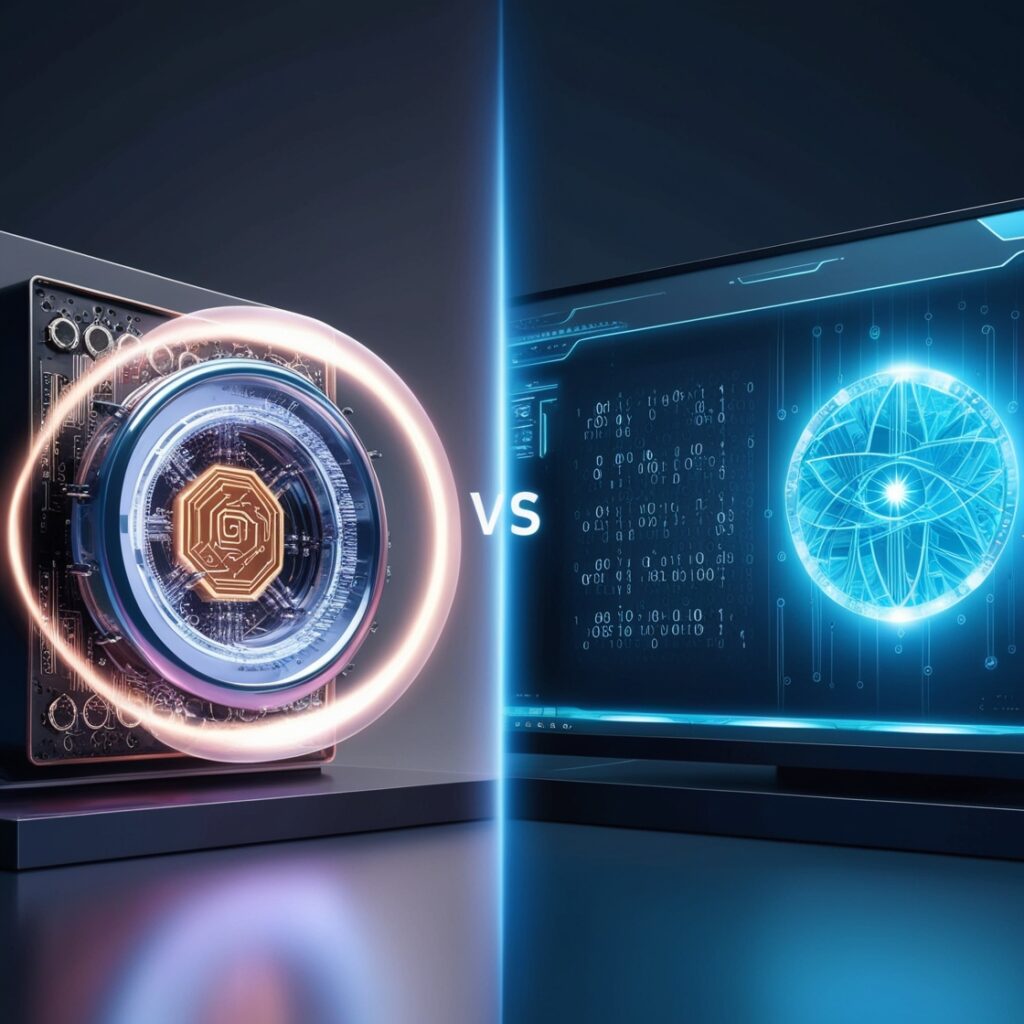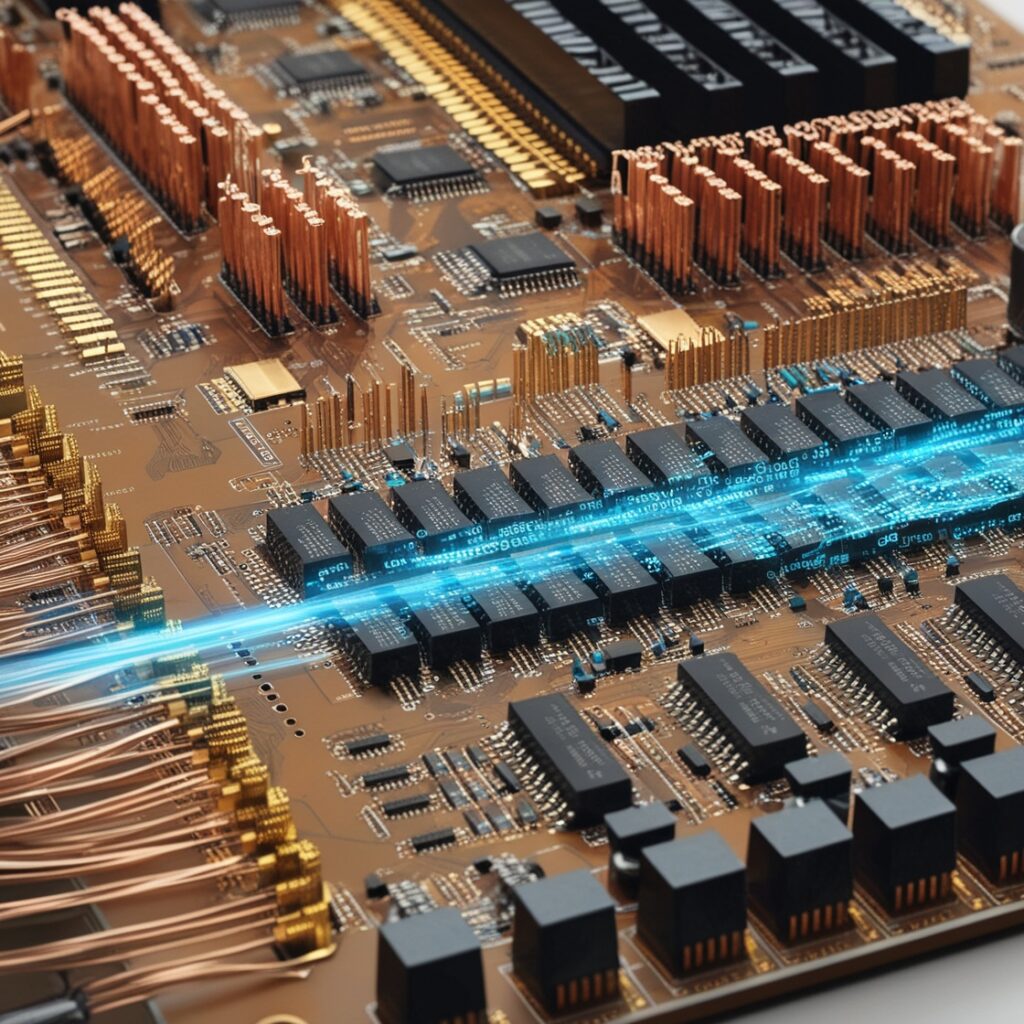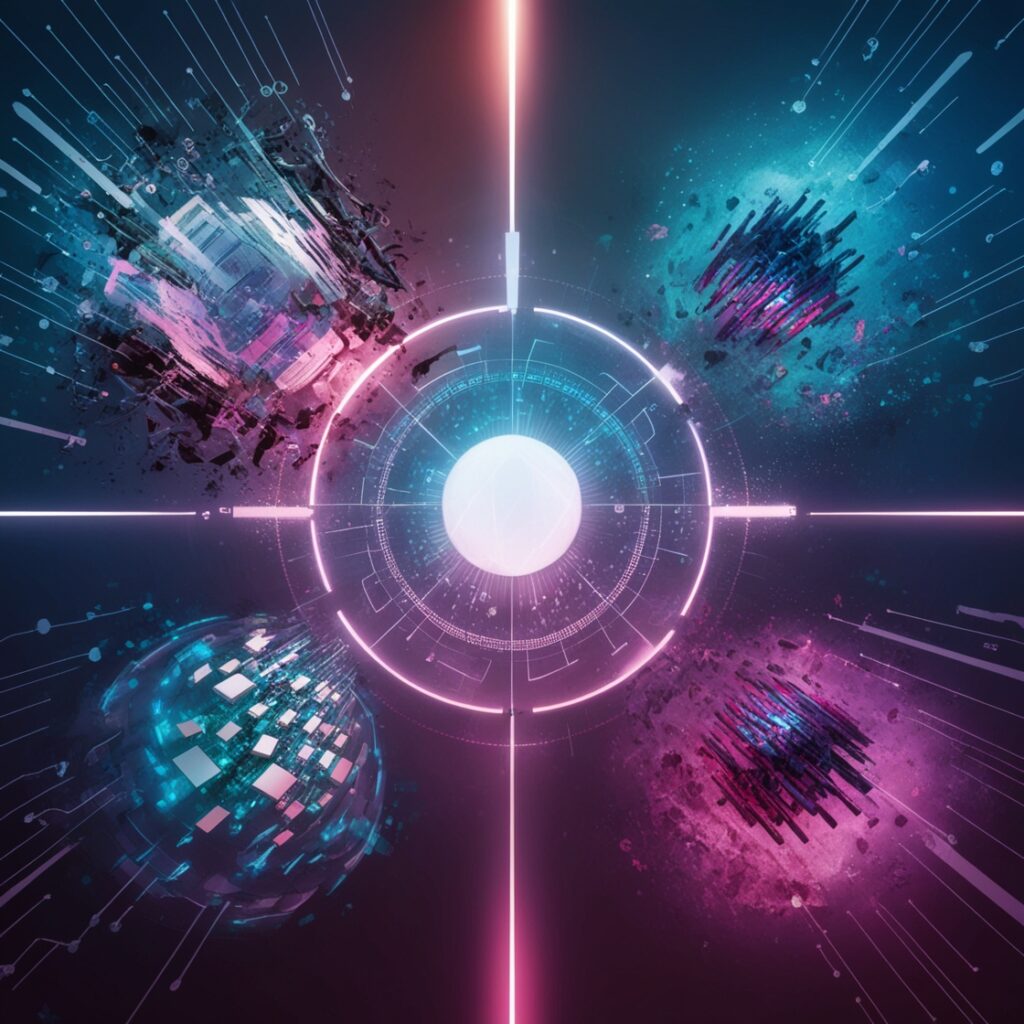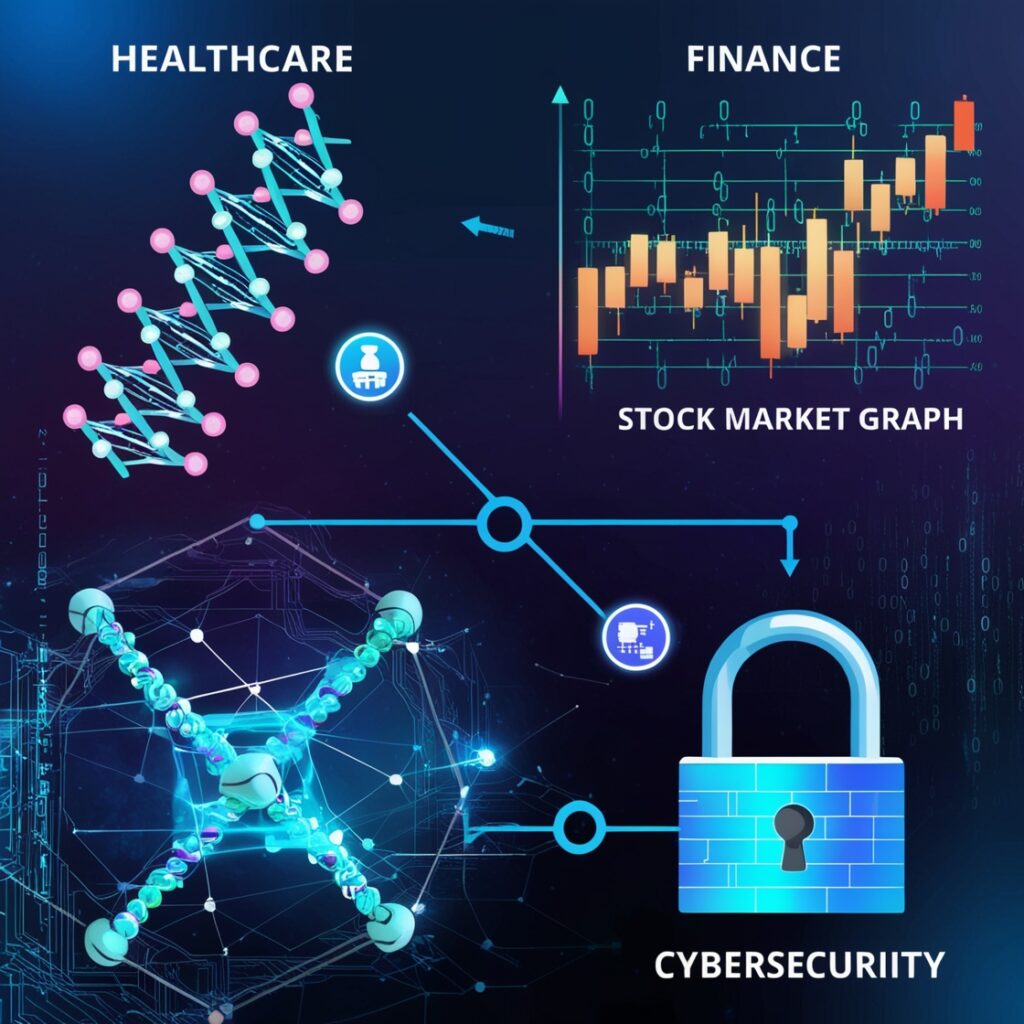
Introduction
In the rapidly evolving global generation, the period of “quantum computing” is gaining plenty of attention. While classical computing has dominated the tech landscape for many years, quantum computing promises to hold progressive changes with its huge computational electricity. But what precisely devices the one’s sorts of computing aside? In this article, we’ll destroy down the fundamental variations between classical computing and quantum computing and why the future may additionally belong to the quantum age
What is Classical Computing?

Classical computing, which we engage with each day, is the foundation of all our current gadgets, from smartphones to supercomputers. At its center, classical computing is primarily based on bits—binary gadgets of facts that constitute either a zero or a 1. These bits are processed via good judgment gates and circuits to perform calculations, solve problems, and run applications.
The power of classical computing lies in its capability to follow algorithms and instructions linearly. However, as tasks and statistics develop more complex, classical computers face barriers, especially in solving enormously intricate issues that require vast processing strength.
Key Characteristics of Classical Computing:
- Binary System (0s and 1s): Every computation is made the use of binary code.
- Deterministic: Classical computer systems observe a fixed of unique commands to attain results.
- Linear Processing: They system one project at a time, step by step.
While classical computing is dependable and powerful for ordinary packages, it falls short while confronted with considerable facts units, and obligations like simulating molecular structures or optimizing large networks.
What is Quantum Computing?

Quantum computing, then again, operates at the concepts of quantum mechanics, a field of physics that explores the behavior of particles on the atomic and subatomic ranges. Unlike classical computer systems, quantum computers use qubits in place of bits
A qubit can exist in more than one state simultaneously, thanks to a phenomenon referred to as superposition. Moreover, qubits may be entangled, meaning the nation of one qubit can rely on the nation of any other, regardless of the space between them. This permits quantum computers to manage large quantities of statistics in parallel, making them exponentially more effective than classical computer systems for certain duties.
Key Characteristics of Quantum Computing:
- Quits: Can represent each 0 and 1 on the equal time, enabling parallel processing.
- Superposition: Qubits exist in multiple states, hugely growing computational opportunities.
- Entanglement: Quantum debris can influence every different immediately, permitting faster facts sharing.
- Probabilistic: Quantum computers offer answers that might be based on chance as opposed to deterministic calculations.
key Differences Between Classical and Quantum Computing
1. Processing Power
Classical computers comply with a linear course, fixing one hassle at a time, even as quantum computer systems leverage the strength of superposition and entanglement to solve complex troubles in parallel. For example, a quantum laptop may want to evaluate a couple of answers to a problem concurrently, something classical computer systems cannot do efficiently.
2. Speed and Efficiency
Quantum computers can clear up problems in seconds that would take classical computer systems lots of years to solve. This velocity benefit is particularly relevant in fields like cryptography, drug discovery, and weather modeling, wherein the complexity of calculations overwhelms classical systems.
3. Applications
Classical computing is pleasant and perfect for everyday duties, such as internet surfing, phrase processing, and gaming. It’s extensively utilized in big-scale packages like database management, software program improvement, and most organization technology.
Quantum computing, however, is designed to address troubles that require titanic computational assets. It has the potential to revolutionize industries like prescribed drugs (simulating molecules), finance (optimizing portfolios), and logistics (solving complex optimization problems).
4. Scalability
Quantum computer systems are still in their infancy, with constrained scalability and balance. As generation advances, quantum computing is predicted to scale up, making it more reachable and commercially viable. Classical computer systems, in the meantime, are properly set up and scalable, although they face bodily limits as components get smaller and faster.
5. Reliability
Classical computing is extraordinarily reliable, generating identical final results for an equal set of inputs on every occasion. In comparison, quantum computing, being probabilistic, affords answers that are primarily based on chances, and there may be a few uncertainties within the output.
Classical Computing Applications

- Web Development and Applications: Everything from social media structures to e-commerce websites relies on classical computing.
- Data Processing: Classical computing powers records centers and drives cloud-based packages, storing and reading tremendous amounts of facts.
- Machine Learning and AI: While AI can benefit from quantum computing, most of the latest AI systems are built and operated on classical computing frameworks.
Quantum Computing Applications
- Cryptography: Quantum computers may want to break contemporary cryptographic structures by fixing complicated mathematical troubles that classical computers struggle with, like factoring in large numbers.
- Drug Discovery: Quantum simulations of molecular interactions can accelerate the drug development method, main to quicker and greater correct predictions of the way new tablets will engage with the human body.
- Financial Modeling: Quantum computers can optimize financial portfolios greater effectively than classical systems, supplying more accurate predictions for investors.
Challenges Facing Quantum Computing
Despite its promise, quantum computing faces full-size technical challenges. Quantum decoherence, for example, is a phenomenon wherein qubits lose their quantum state because of interference from the environment. Ensuring qubits preserve their coherence is a chief hurdle. Additionally, quantum computer systems are currently too high priced for enormous use, and their complete capability stays untapped due to the early degree of the generation.
The Future of Quantum Computing

As research progresses, quantum computing is anticipated to turn out to be extra sensible and less expensive. It can reshape industries, presenting solutions to troubles that are presently unsolvable through classical computing. Whether it’s unlocking new frontiers in synthetic intelligence, allowing more efficient logistics, or making breakthroughs in medicinal drugs, quantum computing will all likely have a profound effect on the sector.
Conclusion
Quantum computing and classical computing serve exceptional purposes, with quantum computing offering unheard-of computational electricity for particular, complicated duties. While classical computer systems are top-notch for normal use, the future belongs to quantum computing for solving problems that were once idea impossible. As this generation matures, we’ll see a substantial shift in industries like finance, healthcare, and cybersecurity, forever converting the manner we approach trouble-solving.
